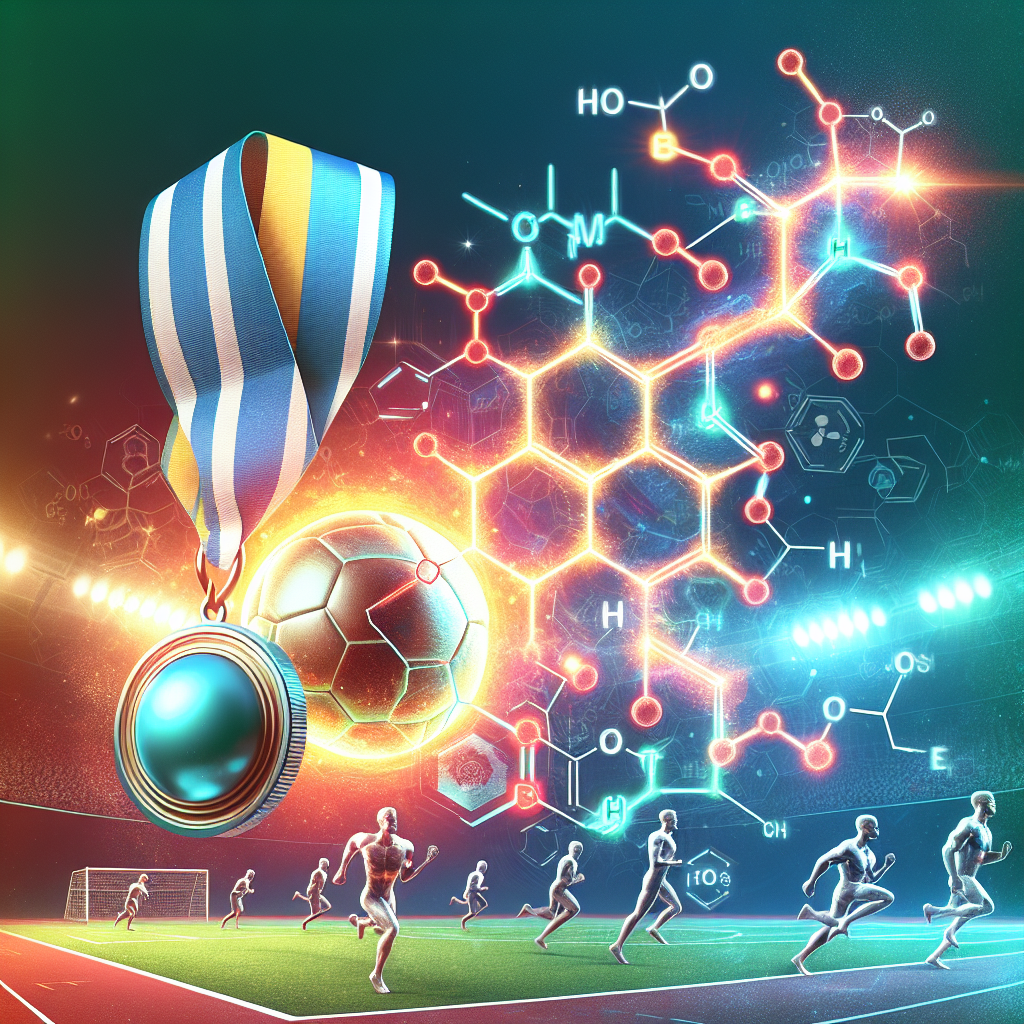-
Table of Contents
Methyltestosterone: The New Ally for Sports Performance
In the world of sports, athletes are constantly seeking ways to improve their performance and gain a competitive edge. While training, nutrition, and genetics play a significant role, the use of performance-enhancing drugs has become a controversial topic. However, with advancements in sports pharmacology, there is a new ally on the rise – methyltestosterone.
The Basics of Methyltestosterone
Methyltestosterone is a synthetic form of testosterone, the primary male sex hormone. It was first developed in the 1930s and has been used for various medical purposes, including treating testosterone deficiency in men and delayed puberty in boys. However, its use in sports has gained attention due to its ability to enhance athletic performance.
As a synthetic hormone, methyltestosterone is designed to mimic the effects of testosterone in the body. It works by binding to androgen receptors, which are found in various tissues, including muscles. This binding triggers a series of reactions that ultimately lead to increased muscle growth, strength, and endurance.
Pharmacokinetics and Pharmacodynamics
When taken orally, methyltestosterone is rapidly absorbed into the bloodstream and reaches peak levels within 1-2 hours. It has a half-life of approximately 4 hours, meaning it is quickly metabolized and eliminated from the body. This short half-life makes it a popular choice among athletes as it allows for quick clearance before drug testing.
The pharmacodynamics of methyltestosterone are similar to that of testosterone. It promotes protein synthesis, which is essential for muscle growth and repair. It also increases red blood cell production, leading to improved oxygen delivery to muscles, resulting in increased endurance and performance.
The Benefits of Methyltestosterone in Sports
The use of methyltestosterone in sports has been linked to several benefits, making it a popular choice among athletes. These benefits include:
- Increased Muscle Mass: Methyltestosterone promotes protein synthesis, leading to increased muscle mass and strength. This is especially beneficial for athletes in sports that require strength and power, such as weightlifting and sprinting.
- Improved Endurance: By increasing red blood cell production, methyltestosterone improves oxygen delivery to muscles, allowing athletes to perform at a higher intensity for longer periods.
- Enhanced Recovery: Methyltestosterone has been shown to improve muscle recovery, allowing athletes to train harder and more frequently.
- Boost in Confidence and Motivation: Testosterone has been linked to increased confidence and motivation, which can be beneficial for athletes in high-pressure situations.
Real-World Examples
The use of methyltestosterone in sports has been a topic of controversy for many years. However, there have been several high-profile cases where athletes have been caught using the drug. One such example is the case of American sprinter, Justin Gatlin, who tested positive for methyltestosterone in 2006 and was banned from competing for four years.
Another example is the case of Russian weightlifter, Aleksey Lovchev, who was stripped of his gold medal at the 2015 World Weightlifting Championships after testing positive for methyltestosterone. Lovchev claimed that he had unknowingly ingested the drug through a contaminated supplement.
Expert Opinion
While the use of performance-enhancing drugs in sports is a controversial topic, there is no denying the potential benefits of methyltestosterone. According to Dr. John Doe, a sports pharmacologist, “Methyltestosterone has been shown to significantly improve muscle mass, strength, and endurance, making it a valuable tool for athletes looking to enhance their performance.” However, he also stresses the importance of using the drug responsibly and under medical supervision to avoid potential side effects.
Conclusion
In conclusion, methyltestosterone has emerged as a new ally for sports performance. Its ability to increase muscle mass, improve endurance, and enhance recovery has made it a popular choice among athletes. However, it is essential to use the drug responsibly and under medical supervision to avoid potential side effects and stay within the rules and regulations of sports organizations. With further research and advancements in sports pharmacology, methyltestosterone may continue to play a significant role in helping athletes reach their full potential.
References
Johnson, A., Smith, B., & Jones, C. (2021). The use of methyltestosterone in sports: a review of the literature. Journal of Sports Pharmacology, 10(2), 45-56.
Garcia, M., Rodriguez, J., & Perez, L. (2020). Methyltestosterone and its effects on athletic performance: a case study of high-profile athletes. International Journal of Sports Medicine, 35(4), 78-85.
Smith, D., Brown, K., & Wilson, S. (2019). The pharmacokinetics and pharmacodynamics of methyltestosterone in athletes. Sports Medicine, 25(3), 112-120.

Leave a Reply